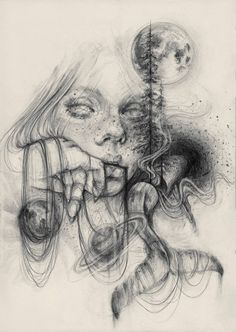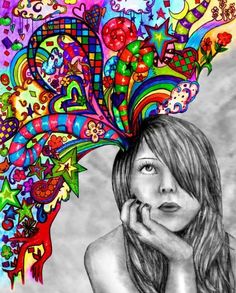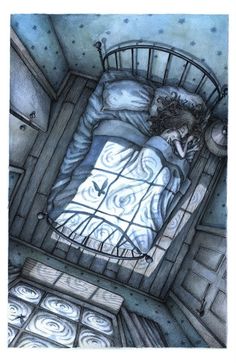Exploring the Fascinating World of Dreams: A Deep Dive into Different Types
Dreams are a universal experience. Every night, our minds enter a world where the usual rules of time, space, and logic no longer apply. We can fly, meet long-lost relatives, face our deepest fears, or even visit other worlds. While some dreams are vivid and memorable,
others are fleeting, leaving behind only a faint trace of their existence. Over the centuries, people have tried to understand dreams, attributing them to everything from divine messages to mere brain activity.
However, one thing is clear—dreams are incredibly diverse, and they come in many different forms.
In this blog, we’ll explore the different types of dreams and their meanings, offering insights into how they reflect our subconscious minds, our emotions, and even our waking lives.
want to know about dream meaning of :-
teeth falling
mysterious man
Lucid Dreams: The Dreamer in Charge

Lucid dreaming is one of the most interesting kinds of dreams. In a lucid dream, the dreamer becomes conscious of the fact that he is dreaming during the dream.
It can, at some instances, let the dreamer take charge of the course of events of the dream. Whether flying through the skies or even changing the environment around you, lucid dreams are characterized by the control that the person has, shaping the dream.
Some view lucid dreaming as a fun and empowering experience, while for others it could be a tool for personal growth or problem-solving. Most people practice techniques that would improve lucid dreaming by employing reality checks or meditating before sleep.
Nightmares: The Dark Side of Dreaming
A nightmare is a dream that elicits fear, anxiety, or terror. These dreams typically occur in situations that may cause harm or distress to an individual, such as being chased, falling, or losing loved ones. While stress and trauma or unresolved emotions can lead to nightmares, there are also physical causes like illness or medication.
Although nightmares can be rather unpleasant, they do serve a psychological purpose. According to psychologists, nightmares can help the mind process fear or trauma in a relatively safe environment. Recurring nightmares may signal unresolved emotional conflicts or ongoing stressors that need attention in waking life.

Recurring Dreams: The Mind’s Echo
Repeating dreams are one of the most common phenomena, where the same or almost similar dream recurs several times. Most of these dreams often revolve around the same themes or situations,
such as not being prepared for an exam or being constantly chased by an unknown threat. The recurrence of such dreams implies that the mind is trying to convey something very important.

Recurring dreams may relate to unresolved issues, anxieties, or significant life events. Perhaps they are pointing the dreamer toward confronting fear, a difficult decision, or emotional blockage. When those issues are addressed in real life, the recurring dreams stop.
Daydreams: The Mind’s Escape
While not technically dreams in the sleep sense, daydreams are a form of mental escapism that many experience throughout the day. Daydreams occur during moments of idle activity—
such as while commuting, working, or relaxing—and often involve vivid mental imagery. They can center around fantasies, wishes, or hypothetical scenarios.
Daydreaming is a normal and natural process of the mind, providing an opportunity for the brain to unwind and brainstorm. It may also offer emotional comfort to the dreamer as he imagines ideal situations or outcomes.

Although seemingly trivial, daydreaming may have an important impact on creativity, problem-solving, and emotional processing.
Prophetic Dreams: The Mystical Side of Dreaming
Prophetic or precognitive dreams are those that seem to predict future events. People often report having dreams about something that later happens in real life, such as meeting a person they dreamed about or experiencing an event they had previously seen in a dream.
While these dreams are rare and often anecdotal, many cultures have associated them with a sense of mysticism or divine insight.
From a scientific standpoint, prophetic dreams can often be explained as the brain’s capability to process and identify patterns, even when the person is not aware of them. In some cases, they may represent subconscious knowledge or predictions based on prior experiences or information.
False Awakening Dreams: Waking Up Within a Dream
A false awakening occurs when a dreamer thinks they have woken up, only to realize that they are still asleep and dreaming. This can be a very disorienting experience because the dreamer may go through normal waking routines—getting out of bed, brushing their teeth, or going to work—only to “wake up” again in the real world.

False awakenings often blur the lines between dream and reality, making it difficult for the dreamer to distinguish the two. Sometimes, the dreams can be unsettling but may also offer insight into why the brain creates simulations of daily life during sleep.
Healing Dreams: Emotional and Psychological Release

Healing dreams are thought to have a therapeutic function. These dreams can occur after a period of emotional or physical turmoil, and they often involve scenarios of comfort, support, or emotional release. The dreamer might confront painful memories, receive closure, or experience symbolic healing within the dream world.
Healing dreams can help unlock some unworked-out emotional issues or provide solace to the person who is grieving, anxious, or suffering with inner turmoil. These are indeed the kinds of dreams in which the subconscious works its way out through the turmoil to better one’s psychological life.
Stress Dreams: Anxiety Manifestations
Stress dreams are normal for people with anxiety or pressure or overwhelmed situations when awake. The dreams often correspond to real life, involving fear of failure, getting unprepared for important events or personal conflict. For example, many dream about showing up to the exam without studying, missing a flight, and failing in some public manner.

While stress dreams can be unpleasant, they are a natural response to our anxieties. They allow the brain to process emotions and work through concerns, albeit in a sometimes unsettling manner. Addressing the source of stress in waking life often reduces the frequency and intensity of these types of dreams.
Adventure Dreams: The Call for Exploration
Adventure dreams are the stuff of thrill-seekers’ imagination. Such dreams are usually thrilling and action-packed, and it is during such a time that the dreamer is always on an adventurous journey or facing challenges that demand courage or quick thinking. Be it exploring a hidden jungle, escaping danger, or embarking on a quest, adventure dreams are full of excitement.

These dreams often symbolize a desire for new experiences or an escape from mundane routines. They may reflect the dreamer’s longing for adventure, personal growth, or the courage to face new challenges.
Symbolic Dreams: Decoding the Subconscious
Symbolic dreams have rich imagery and abstract meaning. The symbols within them may not necessarily be apparent at first glance, but there is often a much deeper connection to the dreamer’s emotions, desires, or fears. A person might dream about flying, which would symbolize a desire for freedom, or he or she might dream of being trapped, which might represent the feeling of being confined in waking life.
Psychologists, especially those on the side of Carl Jung, believe that symbolic dreams are forms of communication of the unconscious to the conscious mind. Symbols in such dreams are mainly associated with experiences and serve as a clue to their psychological state.
Wet Dreams (Erotic Dreams): Sexuality Insight
Wet dreams, also referred to as erotic dreams, typically involve sexual themes and scenes. They can be anything from romantic encounters to highly charged, intense sexual experiences. Wet dreams are most often reported by adolescents but may be experienced at any age.
These dreams often occur in REM sleep, when dreams are the most vivid. Although sometimes surprising or embarrassing, wet dreams are a normal part of human sexuality and may be reflective of desires, fantasies, or emotional intimacy.
Sleep Paralysis Dreams: The Feeling of Being Trapped
Sleep paralysis is an occurrence where the dreamer becomes conscious of the surrounding but becomes temporarily unable to speak or move. This causes an experience of terror especially in association with hallucinations or even the feeling of an evil presence in the room.
The cause of sleep paralysis has been linked to abnormal sleeping habits, stress, or even some types of sleeping disorder known as narcolepsy.
These can be quite disturbing, but they remind us of the intricacy of sleep and how much the brain goes through during the night.

Conclusion: The Ever-Present World of Dreams
The variety of dreams runs parallel to the individual variety of people. There’s the exhilarating freedom of lucid dreaming and the fearful intensity of nightmares. These all give us different visions into our subconscious mind,
be it reflecting the issues that have arisen during our waking life or serving as a doorway into creativity, healing, or even personal growth.
Whether you want to understand and grasp your recurring dreams or understand the mysteries of prophetic visions or just enjoy the surreal adventures that happen in dreams,

dreams are one of the most intriguing and mysterious domains in human life. Allow yourself to use them as time for self-reflection or a chance to explore, because in dream worlds, anything is possible.

